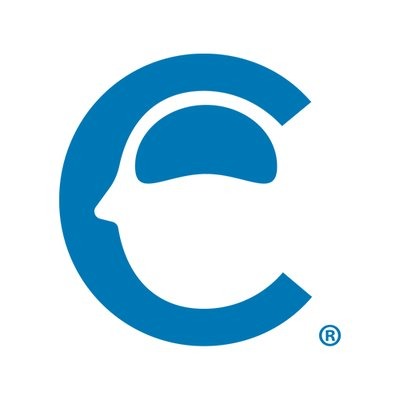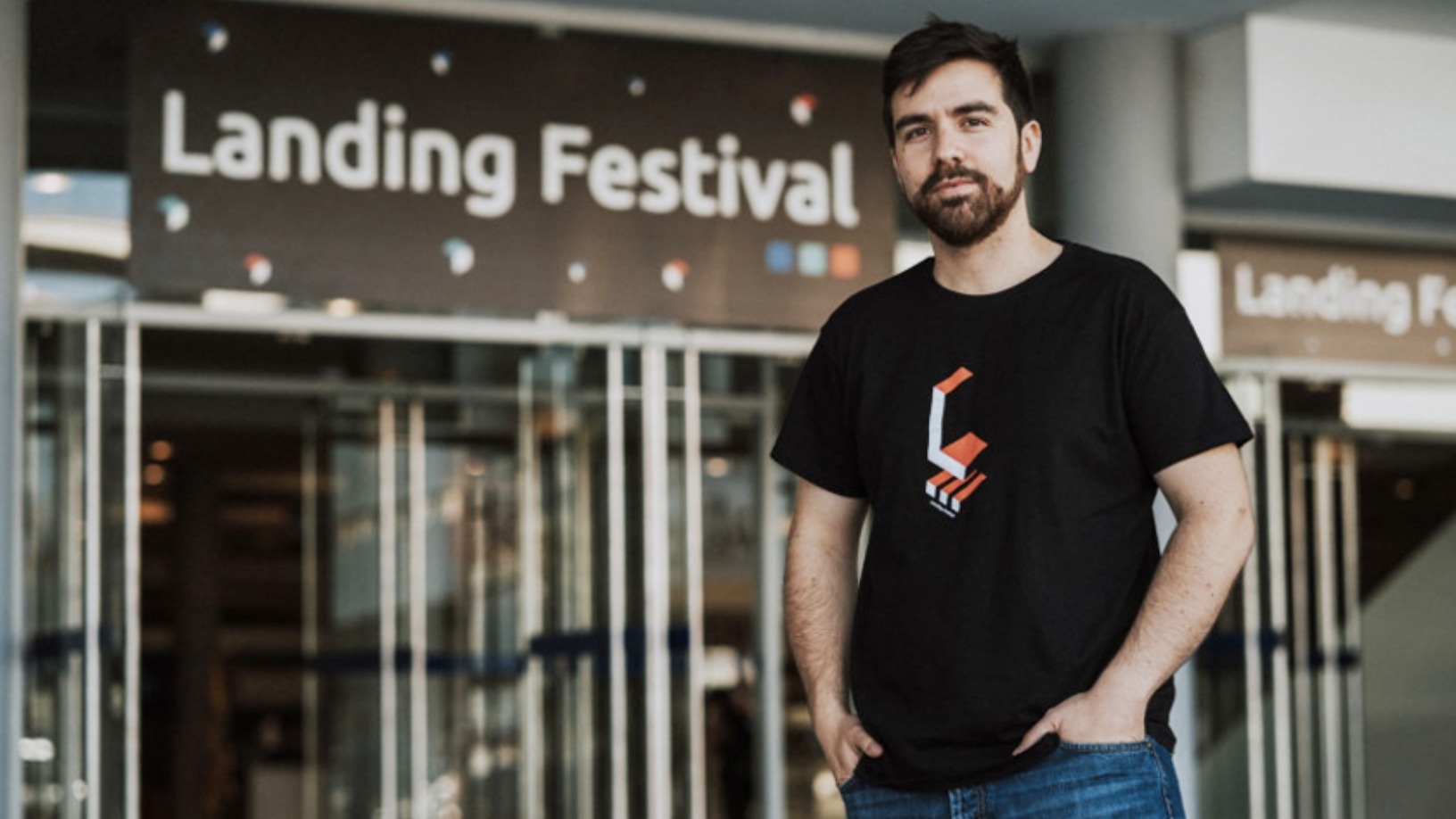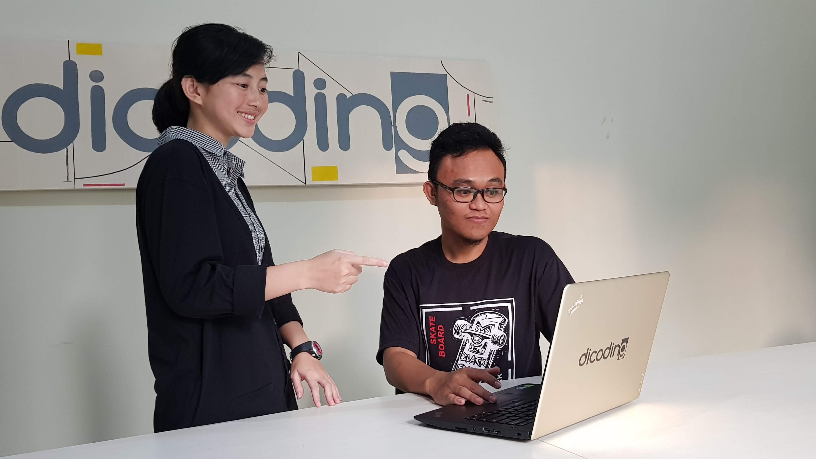With 47% of jobs at risk of being cut due to automation, employees need to be more pro-active in acquiring new, relevant skills to stay competitive in the job market. Capaball, a Madrid-based startup, deploys proprietary algorithms and NLP to search among millions of online training courses for professionals, filtering out and recommending those that would be most relevant to each user.
A Statista survey found that the majority of employees in the tech startup world are in their late 20s. For many Fortune 500 tech companies like HP, their employees are more likely to be pushing 40. The bigger the company, the older the executives, the higher is the risk to be trapped in outdated management systems with a much slower pace of digital innovation.
As a matter of fact, 4 out of 10 companies have not yet incorporated digital transformation plans into their business. The Covid-19 pandemic over the past months has accelerated the need for many businesses to move online, resulting in unprecedented spikes in demand for digital services.
The Capaball founding team comprises serial entrepreneurs and active members of the Spanish startup community. Before Capaball, CEO Sixto Arias had co-founded digital consulting agency Made in Mobile with Capaball CFO Marta Fernández de la Vega, facilitating digital transformation for corporates, and expansion and investment opportunities for IoT startups. The third Capaball co-founder is COO Jose Luis Vega de Seoane, who founded Upplication, a mobile app maker sold to Mobusi in 2017, among others. Both Arias and Vega de Seoane are also partners and mentors at the Conector Startup Accelerator.
Capaball last raised €500,000 in January 2019, in a second round of funding from Carlos Blanco’s Encomenda VC and Spanish angel investors including Kike Sarasola, Marieta del Rivero and Joan Jordi Vallverdú. Blanco also co-founded the Conector Startup Accelerator.
In an interview with CompassList, Arias explains how his company is unleashing a digital revolution in corporate culture, helping companies and thousands of employees challenged by new technologies and job requirements to get up to scratch.
This interview has been edited for length and clarity.
How did the idea of Capaball start and how was the co-founding team formed?
The idea came from our frequent travel to Finland while working with Nordic startups. We noticed how the educational model was being reinvented and found that many companies and executives lacked experience and knowledge about digital transformation.
They needed tools to learn in a different way, especially with regards to continuous learning which requires discipline, effort and a high level of interest. If you have taken an e-commerce course, for example, after two years what you have learned might have changed already. Nowadays, there’s the risk of becoming outdated very quickly.
What is your average customer profile? Are they executives, junior profiles, or even university students?
Our ideal user profile would be a 40-year-old person who has been working all his life in a bank and has no advanced digital knowledge. He can use a mobile and knows how to use the different e-banking apps, but whenever one of his clients ask about fintech and cryptocurrencies, he gets lost. These professionals can’t master such skills in a traditional MBA, as these require continuous learning to stay up to date.
Our clients are companies that purchase Capaball’s license to train their employees. We have clients like Volkswagen, Chanel, Bankia and ACCIONA. We recently onboarded our first client in Colombia, the Sergio Arboleda University.
How many monthly subscribers do you have at the moment?Have you acquired any new clients during these months of lockdown?
We have about 5,000 subscribers, mostly acquired through B2B licenses. On the B2B side, we have onboarded new clients such as Securitas Direct and Traxa, a company with 15,000 employees in the construction sector. Many of existing customers like ICEX and Ferrovial also renewed their subscriptions. On the B2C side, when the pandemic started, we opened our platform free to individual users and doubled our user base with 1,000 new registrations.
What’s your yearly growth? How much revenue are you looking to generate this year?
We launched commercially in 2019. Our turnover for that year was about €100,000. Before Covid, we were looking to close this year with a turnover of €250,000. We haven’t reached break-even yet, but we aim to do it by next year.
Have you seen any new trends emerging over these past months? What are the key areas that you believe professionals will be looking to specialize in in the future?
Automation and robotization are key emerging trends, affecting diverse sectors like e-commerce, teleworking, remote leadership and digitization of all types of operations. There’s been a total immersion in digitization, and things won’t go back to what we were used to. Since this situation has been forced, we believe companies will have to go through a period of training and preparation for their employees.
People start to see their jobs being threatened because of the machines. If your job is to calculate, plan, forecast or store information, etc; there are already machines that can do it much faster and cheaper than you. Therefore, the best way to become more productive is to have more ideas and grab new opportunities by going through a lot of training. This way, continuous learning will play an important role.
You have raised a total of €720,000 in two funding rounds. Are you looking to raise more capital in the short term?
We recently accessed [Spanish state] NEOTEC and ENISA funds. We are not looking for further capital injection at this stage. We are considering pivoting part of our model and product to focus more on mobile, as well as improving our customer retention rate. We also want establish co-productions with players in the edtech segments.
Could you elaborate more on these pivots that you are looking at now?
In the beginning, we didn’t focus on mobile, but we later realized how micro-learning and mobile-learning are playing an important role in education. To improve the overall user experience, we are working on co-productions with Tech Heroes, a company that creates mobile productions and apps for edtech courses with outstanding user retention rates.
In May 2018, you opened an office in Portugal to expand operations into the Portuguese and Brazilian markets. How has this evolved to date? What is your future expansion plan?
The expansion in Portugal is going very slowly. For the Brazilian market, we are collaborating with a senior manager who’s responsible for training 7,000 bank executives for Itaú bank, the first bank in Brazil. Our focus is on LatAm expansion. Six months ago, we signed agreements with agents in Colombia, the Dominican Republic, Puerto Rico and Peru.What is your proprietary content and how do you produce it?
Podcast is our favorite format for educational purposes. People can listen to it while doing other things. We have over 60 podcasts divided into two collections: “Learn to be an entrepreneur” featuring tips from entrepreneurs and the second one, “Secrets from the experts”, includes interviews with experts in specific areas like social media, digital analytics, etc.
How do you source the learning materials?
There are millions of open content online, but there’s also a great “infoxication” and content production these days. Faced with information overload, many people need someone to help them to find the best-fit relevant content for desired educational goals. We can help them through our algorithms.
We ask users to help us to refine the results, depending on their likes or dislikes of the content suggested, as well as the content saved as favorites or shared on social media. Our algorithms will learn, filter and select content that matches with each user’s preferences and learning goals.
Capaball also develops proprietary content and creates content in collaboration with partners. We work with Statista for infographics, Storytel for audiobooks, while video content is sourced by Thinking Heads, a platform that improves leadership skills through webinars and talks by public speakers.
Training has become a powerful commercial tool. During Covid-19, many companies have started to produce their own brand content. For example, the content of a company that develops chatbots for clients can be used as training material. By offering the content to Capaball users we also generate commercial leads for the chatbot company.
What are the main NLP criteria that you use to analyze and filter courses? How does the process work?
We personalize content for our users in two ways. First, we ask them to take a generic test to identify their job sector, training topics and level of digital maturity which is measured using digital tools that are familiar to our users. The ability to use tools like Bizum, Slack and Google Analytics reflect an advanced level of digital maturity. A user’s level of digital maturity is assessed as basic if the person only uses email and WhatsApp.
Our algorithms will then identify the skills needed and recommend training courses that match the capabilities of each user. The more content the user consumes, the more our AI will learn about their progress. We also keep track of the time that users dedicate to learning new skills and benchmark it with the time spent by colleagues or users with similar profiles. Users need to invest a minimum of two hours of training in order to get a certificate showing the number of hours spent in acquiring a given skill.















